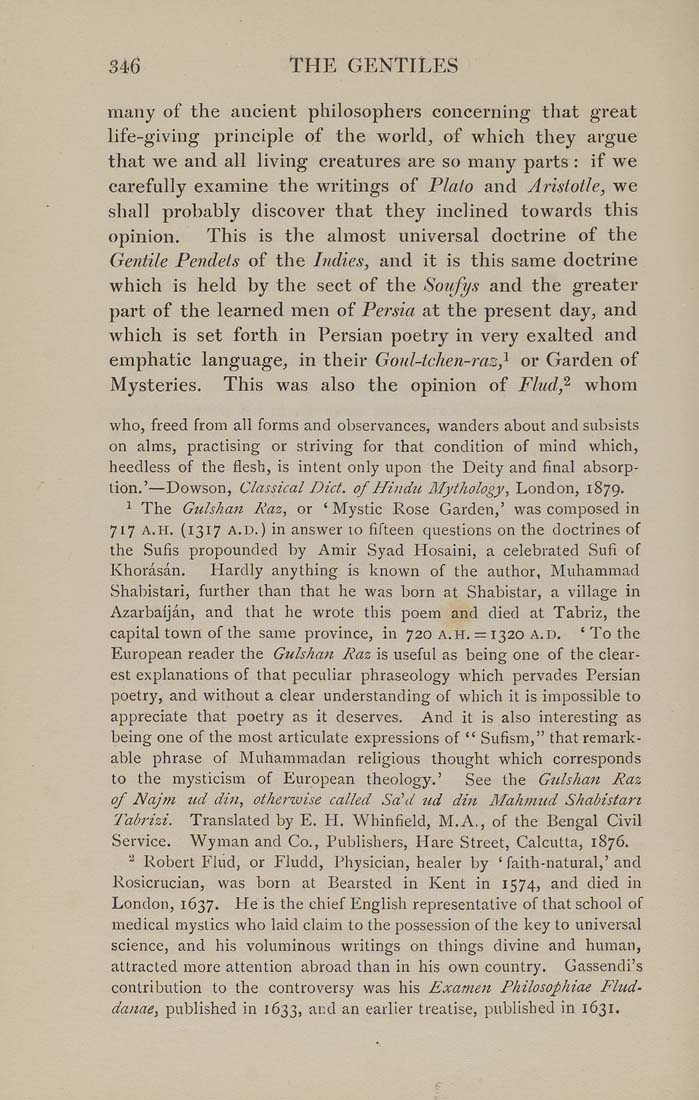346 THE GENTILES
many of the ancient philosophers concerning that great
life-giving principle of the world, of which they argue
that we and all living creatures are so many parts : if we
carefully examine the writings of Plato and Aristotle, we
shall probably discover that they inclined towards this
opinion. This is the almost universal doctrine of the
Gentile Pendets of the Indies, and it is this same doctrine
which is held by the sect of the Soufys and the greater
part of the learned men of Persia at the present day, and
which is set forth in Persian poetry in very exalted and
emphatic language, in their Goul-tchen-raz} or Garden of
Mysteries. This was also the opinion of Flud,'^ whom
who, freed from all forms and observances, wanders about and subsists
on alms, practising or striving for that condition of mind which,
heedless of the flesh, is intent only upon the Deity and final absorp¬
tion.'—Dowson, Classical Diet, of Hindu Mythology, London, 1879.
! The Gulshan Raz, or ' Mystic Rose Garden,' was composed in
717 a.h. (1317 A.D.) in answer to fifteen questions on the doctrines of
the .Sufis propounded by Amir Syad Hosaini, a celebrated .Sufi of
Khorasan. Hardly anything is known of the author, Muhammad
Shabistari, further than that he was born at Shabistar, a village in
Azarbaijan, and that he wrote this poem and died at Tabriz, the
capital town of the same province, in 720 A.H. = 1320 a.d. ' To the
pAiropean reader the Gulshan Raz is useful as being one of the clear¬
est explanations of that peculiar phraseology which pervades Persian
poetry, and without a clear understanding of which it is impossible to
appreciate that poetry as it deserves. And it is also interesting as
being one of the most articulate expressions of " Sufism," that remark¬
able phrase of Muhammadan religious thought which corresponds
to the mysticism of European theology.' See the Gulshan Raz
of Najm ud din, otherwise called Sa'd ud din Mahmud Shabistari
Tabrizi. Translated by E. H. Whinfield, M.A., of the Bengal Civil
Service. Wyman and Co., Publishers, Hare Street, Calcutta, 1876.
^ Robert Pdud, or Fludd, Physician, healer by 'faith-natural,'and
Rosicrucian, was born at Bearsted in Kent in 1574, and died in
London, 1637. He is the chief English representative of that school of
medical mystics who laid claim to the possession of the key to universal
science, and his voluminous writings on things divine and human,
attracted more attention abroad than in his own country. Gassendi's
contribution to the controversy was his Examen Philosophiae Flud-
danae, published in 1633, and an earlier treatise, published in 1631.
|








